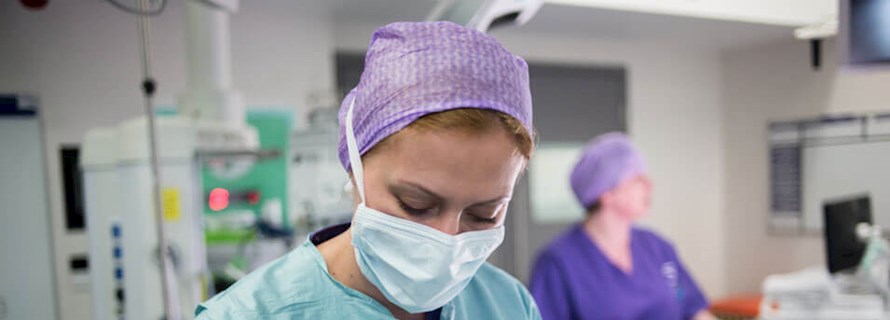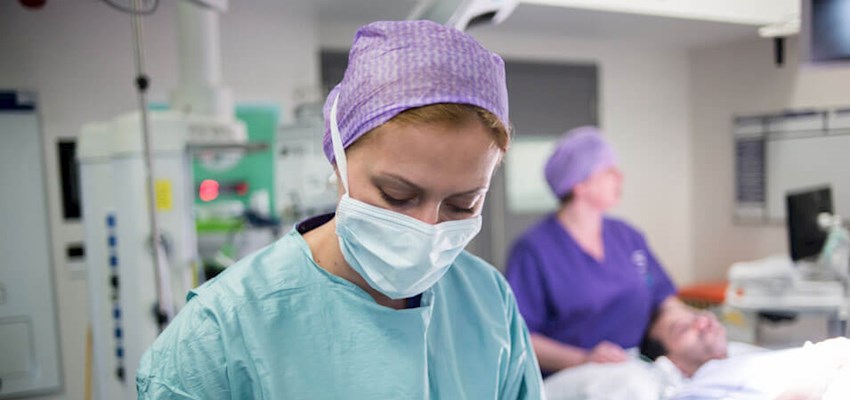Cataract surgery
Phakoemulsification
Cataract surgery can restore normal vision by replacing the clouded lens in your eye with an artificial one
Surgery for a cateract
A cataract is a clouding of the lens in your eye, which can make your vision blurred or misty. You can develop cataracts in one or both of your eyes.
A surgical procedure can remove and replace the lens affected by cataracts to improve vision. In most cases a cataract procedure is conducted on one eye at a time.
A surgical procedure can remove and replace the lens affected by cataracts to improve vision. In most cases a cataract procedure is conducted on one eye at a time.
Need to know
-
What happens during cataract surgery? icon plus
Before the procedure, your surgeon will put drops in your eye to widen your pupil and relax the muscles in your eye. Local anaesthetic drops are then applied to numb your eye and block pain during surgery.
To start the surgery your surgeon will make microscopic cuts on the surface of your eye. Using a specialised instrument that emits ultrasonic waves, they will break up the lens affected by the cataract into tiny pieces and remove it. The natural lens is then replaced by an artificial one, called an intraocular lens (IOL). An IOL is a clear plastic lens that requires no care and becomes a permanent part of your eye. -
How to prepare icon plus
Your consultant will explain the procedure to you and answer any questions you may have. You might need to have an assessment before your surgery to measure your eyes. This will help your consultant to select the artificial lens that is best for you.
Like all procedures, there may be some risks and side effects involved. Your consultant will explain these to you. -
After having cataract surgery icon plus
You should be able to go home the same day with any pain or discomfort only lasting for a day or two. Your consultant may give you some eye drops to reduce any swelling or inflammation in your eye.
Most people who have cataract surgery find that their sight has improved immediately. However, your vision may still be blurred until your eye has fully healed. This can take from two to six weeks. You may need to wear reading glasses after cataract surgery.
Don't wait, pay for yourself
We offer this treatment at a fixed price at some of our facilities.
Our ophthalmic surgeons
We're proud to work with leading eye specialists, whose skills are matched by their integrity and compassion.




Our locations
From complex eye surgery to cataract procedures, we provide exceptional ophthalmic care across our network of hospitals, outpatient centres and specialist clinics.
-
Golders Green Outpatients and Diagnostics Centre
Roman House
296 Golders Green Road, Golders Green
London NW11 9PY
Book an appointment
Our team can help with any enquiries or you can make an appointment with one of our experienced consultants.
Call us today
020 7079 4344
This content is intended for general information only and does not replace the need for personal advice from a qualified health professional.